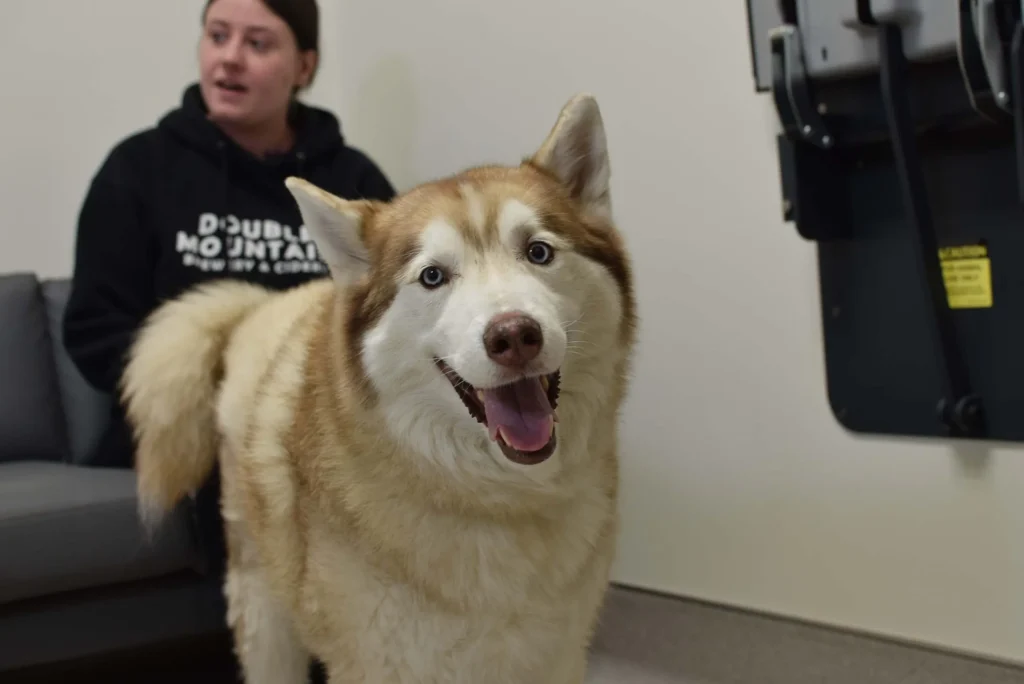How to Choose the Ideal Veterinarian for Your Adopted Pet

Finding the Right Care for Your Furry Friend
Bringing a pet into your home is not just about providing companionship; it is also about committing to their health and happiness. One of the first and most important steps in fulfilling that commitment is selecting a veterinarian who will be an integral part of your pet’s life. A competent and caring vet can help address any health concerns, provide vaccinations, and support your pet’s overall well-being as they adjust to their new environment.
When it comes to choosing the ideal veterinarian, there are several critical factors to consider:
- Location: Accessibility matters considerably, especially in emergencies. Seek out a veterinary clinic that is conveniently located near your home or workplace. A nearby vet can significantly cut down on travel time during those crucial moments when every second counts.
- Services Offered: Look for veterinary clinics that provide a wide range of services. Basic preventive care, such as vaccinations and wellness exams, is essential, but consider if the clinic offers emergency services, dental care, and specialty treatments such as behavioral therapy or oncology. Many clinics also provide preventive behavioral training, which can be crucial for first-time pet owners.
- Staff Qualifications: Pay attention to the experience and friendliness of the staff at the clinic. A well-trained, compassionate team can create a welcoming environment for both you and your pet, helping to alleviate any stress during visits. Check if the veterinarians are certified and have any specialized training that aligns with your pet’s breed or specific health issues.
It’s also essential to think about your pet’s unique needs. Different pets may require specialized care:
- Breed-Specific Issues: Certain dog and cat breeds may be predisposed to specific health issues. For example, large breeds like Great Danes can suffer from hip dysplasia, while Persian cats are prone to respiratory problems. A veterinarian with expertise in particular breeds can provide invaluable guidance on preventive measures and treatments.
- Aging Pets: Older pets often need special care and regular check-ups to monitor chronic conditions. A veterinarian experienced in geriatric care will understand the particular nuances of aging pets’ health and have the right approach to address their needs effectively.
Finding the right veterinarian is a personal journey, so don’t hesitate to seek recommendations from other pet owners or to read online reviews on platforms like Yelp or Google. Social media pet communities can also serve as excellent resources for feedback on local veterinary clinics. By investing time in research and asking questions, you can ensure your furry companion receives the best care possible, creating a happy, healthy, and long-lasting bond between you and your beloved pet.
DISCOVER MORE: Click here for expert adoption tips

Essential Considerations for Optimal Pet Care
Choosing a veterinarian for your newly adopted pet is a fundamental decision that can significantly influence their quality of life. The right vet becomes not just a medical professional but a partner in your pet’s journey towards health and happiness. In an ideal scenario, this choice reflects your pet’s specific needs and aligns with your values as a pet owner. Below are essential considerations to guide you through the process of selecting the perfect veterinarian.
Trust and Communication
One of the most important qualities to look for in a veterinarian is their ability to foster trust and open communication. You want a vet who takes the time to explain your pet’s health needs clearly and answers any questions you may have. A good veterinarian will not only listen but also provide valuable insights and recommendations based on their expertise. Look for attributes such as:
- Approachability: Is the vet friendly? Do they make you and your pet feel at ease during visits?
- Willingness to educate: Does the vet take the time to discuss preventive care and treatment plans in detail?
- Follow-up care: Are they proactive about checking in on your pet’s progress after a visit?
Having an open line of communication with your veterinarian is essential, as it ensures you’re both aligned in your goals for your pet’s health. This relationship can also provide peace of mind during challenging times, such as diagnosis and treatment plans.
Facility Accreditation and Cleanliness
The environment where your pet will receive care should evoke confidence and assurance. Veterinary clinics should adhere to high standards of cleanliness and organization. Take the opportunity to visit the facility before making a decision. Look for signs of proper maintenance and sanitation, including:
- Clean examination rooms: Check for spotless surfaces, fresh air, and minimal clutter.
- State-of-the-art equipment: Ensure the clinic is equipped with modern diagnostic tools and treatment facilities.
- Emergency preparedness: Ask about their protocols and resources for handling emergencies.
When visiting potential veterinary clinics, pay attention not only to the physical environment but also to the overall atmosphere and how staff interacts with both pets and their owners. A welcoming atmosphere can make all the difference during stressful vet visits.
Personal Recommendations vs. Online Research
Gathering recommendations from friends, family, and fellow pet owners can be a valuable first step in your search. Personal experiences often provide insights that online reviews may not capture. Additionally, platforms such as Yelp or Google Reviews can highlight local veterinary clinics’ reputations, but be vigilant. Look for patterns in comments rather than isolated experiences.
By combining personal recommendations with thorough online research, you can create a shortlist of potential veterinarians that suit both your and your pet’s needs. This careful selection process can help ensure that your furry friend receives exemplary care throughout their life.
Choosing the ideal veterinarian for your adopted pet is crucial for ensuring their well-being. With so many options available, it can be overwhelming. However, there are several key factors to consider that will help you make the best decision for your furry friend.Firstly, consider the veterinarian’s experience with *adopted pets*. Many adopted animals come with unique backgrounds that may include past traumas or specific health issues. A vet who has expertise in handling rescue animals can provide tailored care and advice, ensuring your pet receives the necessary attention and support.Another vital aspect is the availability of services that cater specifically to *adopted pets*. Some veterinarians offer unique programs like behavioral assessments or specialized medical care for former stray animals. Look for clinics that have the capacity to connect you with additional resources such as trainers or behaviorists who can assist in the transition to a new home.Moreover, pay attention to the clinic’s environment. When bringing your adopted pet for their first visit, observe whether the surroundings are clean, welcoming, and stress-free. A low-stress setting can make a significant difference in your pet’s comfort level.It is also beneficial to seek recommendations from *other pet adopters or local shelters*. These sources will often have firsthand experience with veterinarians in your area, providing you with insights into their care philosophy and practices.Finally, make sure the veterinarian you choose is one that you feel comfortable communicating with. Trust your instincts and ensure that the veterinarian is willing to answer all your questions thoroughly. This relationship is key not only for your pet’s health but for your peace of mind as a pet owner.As you embark on this journey to find the ideal veterinarian, keep these considerations in mind. It is not just about finding someone to provide medical care; it is about forming a partnership for your pet’s health and happiness.
DISCOVER MORE: Click here to learn about caring for elderly pets
Evaluating Veterinary Expertise and Specializations
As you navigate the selection process for your pet’s veterinarian, it’s crucial to consider the expertise and specializations of the practitioners at the clinic. Every pet has unique health needs, and ensuring that the veterinarian has the right experience to address these needs is paramount. Here are key factors to examine:
General Practice vs. Specialized Care
While many veterinarians offer general care services that encompass a wide array of health issues, certain situations might call for more specialized expertise. Board-certified specialists typically focus on specific areas, such as dermatology, cardiology, or oncology. If your new pet has pre-existing conditions or specific health concerns, it may be beneficial to seek a veterinarian who has significant experience in those areas. For instance, a pet with chronic skin issues would benefit from a veterinarian who specializes in dermatological conditions, ensuring that your furry friend gets targeted and effective treatment.
Continuing Education and Advances in Veterinary Medicine
The field of veterinary medicine is continually evolving, with new treatments and technologies emerging regularly. It’s essential to choose a veterinarian who prioritizes continuing education and stays updated on the latest advancements in animal healthcare. Consider inquiring about:
- Membership in professional organizations: Being part of associations such as the American Veterinary Medical Association (AVMA) often indicates a dedication to ongoing education.
- Participation in workshops and courses: Ask if the veterinarian attends conferences or specialized training to keep their skills sharp.
- Facility involvement: A clinic actively employing novel technologies in diagnostics or treatment can enhance the level of care your pet receives.
In the rapidly changing landscape of veterinary medicine, a commitment to lifelong learning from your chosen veterinarian can significantly enhance your pet’s care experience.
Emergency and After-Hours Care
*Emergencies can happen at the most unexpected times,* and knowing how your veterinarian manages such situations can provide tremendous peace of mind. Determine whether the veterinary clinic offers emergency services or if they have partnerships with nearby emergency veterinary hospitals. Consider asking:
- Availability: Does the clinic have after-hours care, or do they refer after-hours emergencies elsewhere?
- Response protocols: How does the clinic handle emergencies? Understanding their response time and procedures can help you prepare in an urgent situation.
- Support for critical conditions: Do they have specialized equipment or trained personnel available for critical care cases?
Having a veterinarian who can provide immediate care or direct you to reliable emergency resources is an invaluable part of ensuring your pet’s health during unforeseen incidences.
Cost of Care and Payment Options
Veterinary care can sometimes be an unanticipated expense, so discussing costs and payment options upfront is advisable. Different clinics have varied price structures, and understanding them can help you avoid surprises down the road. Key points to discuss include:
- Standard consultation fees: What will the initial visit cost? Are follow-up visits similarly priced?
- Payment plans: Does the clinic offer flexible payment options or partnerships with organizations that aid in financing pet care?
- Pet insurance compatibility: Is the clinic supportive of pet insurance claims, and do they work with specific providers?
Being proactive about financial considerations can prevent stress when it comes time for routine check-ups or emergency care.
READ MORE: Click here to learn about responsible pet adoption
Conclusion: Finding the Right Fit for Your Furry Companion
Choosing the ideal veterinarian for your adopted pet is a crucial step in ensuring their long-term health and happiness. As we’ve explored, it goes beyond simply picking the closest clinic; it involves evaluating the expertise, specializations, and the overall care philosophy that resonates with you and your pet’s specific needs. From understanding whether a general practitioner or a specialist better suits your pet’s situation to ensuring the clinic is equipped for emergencies, every detail matters.
Additionally, considerations such as continuing education of the staff, available after-hours services, and transparent discussions about costs further empower you to make an informed decision. These factors can not only enhance the healthcare your pet receives but also build a trusting relationship that nurtures both your pet and your peace of mind.
Ultimately, investing time in this selection process ensures you have a veterinarian who not only provides exceptional care but also becomes a trusted advisor in your pet’s health journey. Remember, a well-informed pet owner is an advocate for their furry companion. Engage with potential veterinarians, ask questions, and trust your instincts – your pet’s well-being is worth it.
By following the guidelines shared in this article, you will be further equipped to find the best veterinarian tailored to your adopted pet’s needs, paving the way for a healthy and joyful life together.



